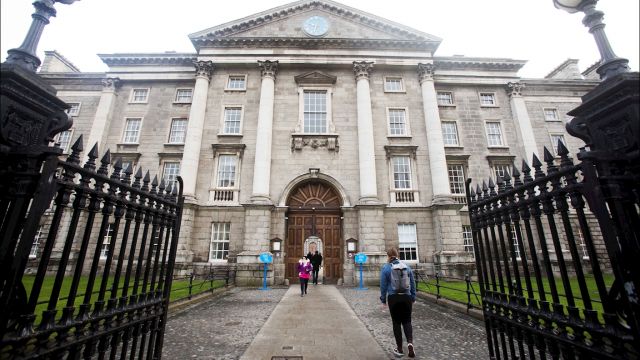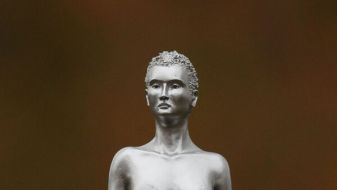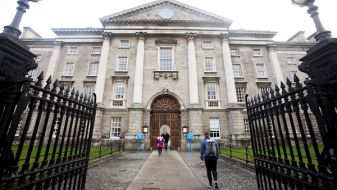Trinity College Dublin is embarking on an extensive project to examine and reflect on its complex colonial legacies.
An open competition will be held to find a student representative for a new 24-month postdoctoral research position based in the School of Histories and Humanities and the Trinity Long Room Hub Arts and Humanities Research Institute.
The principal investigators for Trinity’s Colonial Legacies Project are Dr Ciaran O’Neill and Dr Patrick Walsh, School of Histories and Humanities.
Trinity’s history has been bound up within wider narratives about colonialism, plantation and imperialism at home and abroad since its foundation in 1592.
Recently attention has been drawn to the fact that George Berkeley, the globally renowned philosopher for whom Trinity’s library was named following its completion in 1967, was also a slave-owner.
This has prompted a public debate about Trinity’s financial and other connections to the slave trade.
Today Trinity announced a 2 year investigation project #TrinityColonialLegacies to be led by Dr Ciaran O'Neill @ciaranon & Dr Patrick Walsh @SpeakerConolly @TCDHistory, which is an opportunity to review, reflect and examine a long and complex history.
#HumanRights #History pic.twitter.com/QppHt3NOXN— Trinity College Dublin (@tcddublin) February 17, 2021
Colonial ideologies
An advisory board will oversee the work consisting of Trinity Chancellor and former President of Ireland, Mary McAleese, prof Vincent Brown, prof Finola O'Kane-Crimmins, and Prof Clive Lee, Professor of Anatomy, RCSI, to name a few.
The examination will look, not just at slavery but also Trinity’s historical and intellectual connections to empire particularly, but not exclusively, in the Atlantic World.
Trinity's fellows and graduates, including Edmund Burke and James Mullalla were active in producing critiques of slavery and in supporting early abolitionist movements, while the anti-imperial critiques and actions of the Trinity students involved in the United Irishmen are well known.
At the same time Trinity said it was redeveloping its curriculum to meet the demands of the British empire and it by the mid 19th century it had evolved into an exporter of colonial ideologies and servants.
Speaking about the research, Dr Ciaran O Neill said: “We are really excited about the Trinity's Colonial Legacies project.
“It gives us an opportunity to have a critical conversation about Trinity's multiple connections to empire. Ideally that would take place in an open and transparent process that is as inclusive as possible."
Meanwhile, Dr Patrick Walsh said: “We are delighted to begin this research exploring Trinity's multi-faceted connections to empire at home and abroad over the last four centuries and to contribute to an important ongoing public conversation within Trinity and within Irish society about our colonial legacies and how they have shaped our complex present”.







